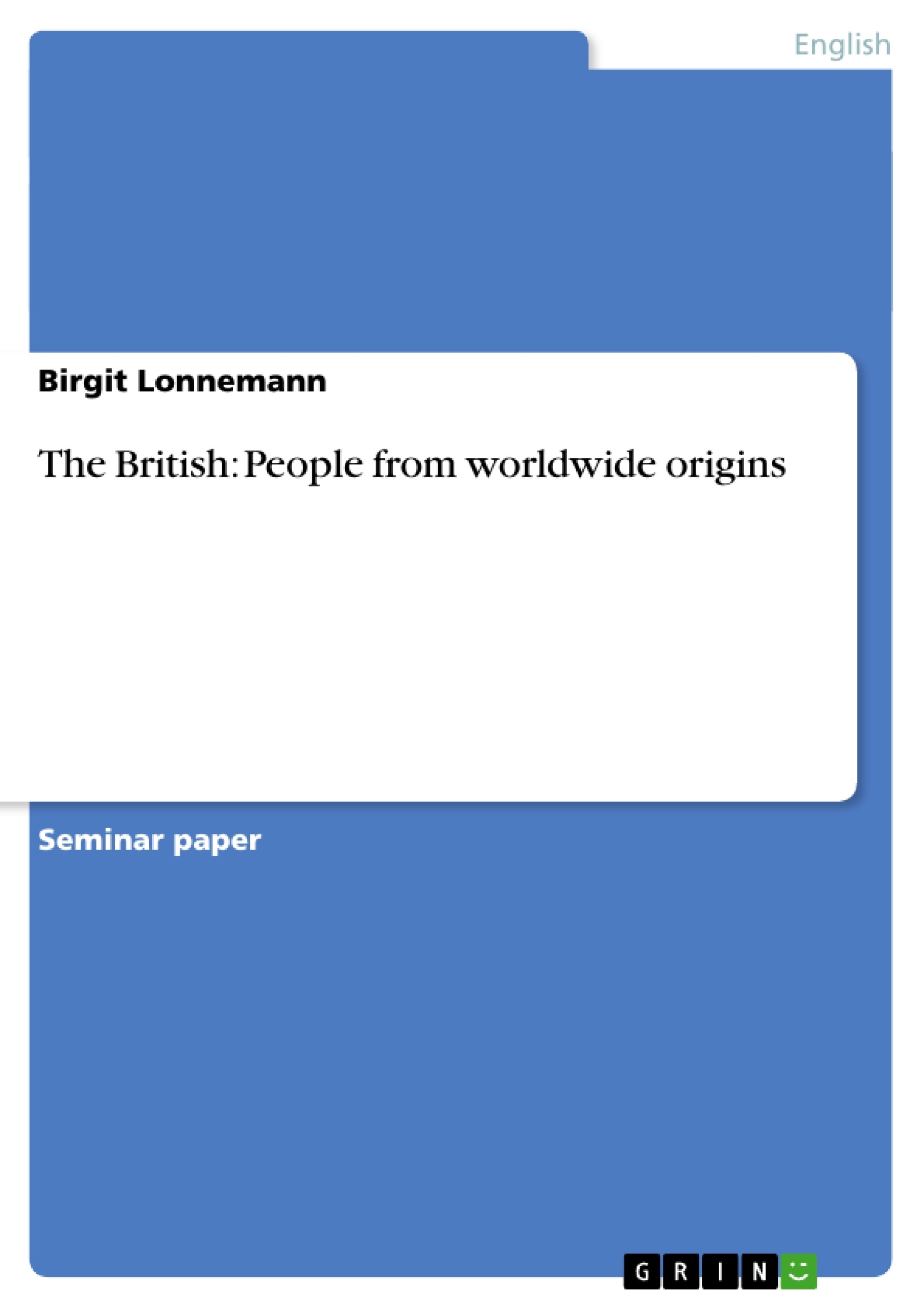“We call our islands by no less than six different names,
England, Britain, Great Britain, the British Isles, the
United Kingdom and, in very exalted moments, Albion.”
This quotation taken from George Orwell’s essay
England, Your England (1941) clearly shows that the names
quoted above are often used as synonyms, although they
patently are not. So it is no surprise that some people define
themselves as being “Englishsorrybritish” – a term which
occurred in the newspapers several times over the last few
months. A lot of people seem to be quite confused about their
identity, about who they are and where they belong. But using
the words “English” and “British” interchangeably is, in my
opinion, not very fair – especially with regard to the inhabitants
of Scotland, Wales and Northern Ireland.
In fact, the so-called United Kingdom of Great Britain
and Northern Ireland comprises four different indigenous
nations: English, Scottish, Welsh and Northern Irish. And
considering the fact that the British Isles (cf. map 1, page 2) – of
which the United Kingdom3 is a part – have attracted settlers
and immigrants for several centuries, it is not surprising that the
contemporary British are a very diverse people, or – as is stated
in the title of my paper – people from worldwide origins. The
question arises whether the majority of people in the United
Kingdom consider themselves to be British or rather to be
English, Scottish, Welsh, Northern Irish or part of any other
community often referred to as a so-called ethnic minority
group.
Inhaltsverzeichnis (Table of Contents)
- I. Introduction
- II. First and Early Settlement up to 1066 AD
- III. Growth and Immigration up to the Twentieth Century
- IV. Immigration and Population Movements in the Twentieth Century
- V. Attitudes towards National Identities and Britishness
- VI. Conclusion
Zielsetzung und Themenschwerpunkte (Objectives and Key Themes)
This paper examines the historical development of a multicultural, multinational, and multiracial Britain. It explores the origins of British identity and the impact of immigration on the nation's diverse population.- Early settlement and immigration patterns in Britain
- Evolution of national identities in Britain
- The significance of diverse origins in shaping British culture
- Changing perceptions of Britishness over time
- The role of immigration in creating a multi-ethnic society
Zusammenfassung der Kapitel (Chapter Summaries)
I. Introduction
This chapter introduces the topic of British identity and its complexities, highlighting the various names used to refer to the British Isles and the confusion surrounding national identity. It emphasizes the diverse origins of the British population and the need to understand the historical processes that led to this multicultural society.II. First and Early Settlement up to 1066 AD
This chapter explores the earliest known settlements in Britain, focusing on the Old Stone Age nomads who crossed from mainland Europe. It provides a brief overview of the early inhabitants of Britain, setting the stage for later migration and cultural development.III. Growth and Immigration up to the Twentieth Century
This chapter examines the various waves of immigration that occurred in Britain from the late Roman period to the beginning of the 20th century. It discusses the impact of these migrations on British society, including cultural influences, population growth, and the evolving concept of British identity.IV. Immigration and Population Movements in the Twentieth Century
This chapter focuses on the significant immigration trends that occurred in the 20th century, including the impact of World War II, the arrival of post-war immigrants, and the changing demographic landscape of Britain. It explores the social, economic, and cultural implications of these movements.Schlüsselwörter (Keywords)
This paper explores the themes of British identity, immigration, multiculturalism, national identity, and the diverse origins of the British population. It examines historical trends, migration patterns, and the impact of these factors on shaping British culture and society.Frequently Asked Questions
What is the main focus of this paper?
The paper examines the historical development of Britain as a multicultural and multinational society, focusing on how immigration from worldwide origins has shaped British identity.
What are the four indigenous nations of the United Kingdom?
The UK comprises four nations: the English, Scottish, Welsh, and Northern Irish, each with its own distinct identity.
Why is there confusion between the terms "English" and "British"?
The terms are often used interchangeably as synonyms, which the author argues is unfair to the inhabitants of Scotland, Wales, and Northern Ireland who are British but not English.
What historical periods of immigration are covered?
The study covers early settlements up to 1066 AD, growth through the Roman period to the 20th century, and the significant population movements of the modern era.
How has 20th-century immigration changed Britain?
Significant trends, especially after World War II, led to a multi-ethnic society, changing the demographic landscape and evolving the concept of "Britishness."
What does the term "Englishsorrybritish" refer to?
It is a term used in media to describe the identity confusion people feel when choosing between their national (e.g., English) and state (British) identities.
- Quote paper
- Dr. phil. Birgit Lonnemann (Author), 1999, The British: People from worldwide origins, Munich, GRIN Verlag, https://www.grin.com/document/117718



